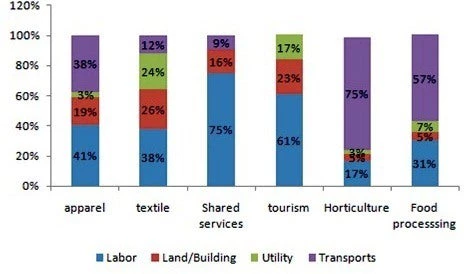 If you are raising your children by focusing on giving them what they want, don’t read this blog. Today most governments want to help the firms operating in their country. But because this task is a complex one, their strategy has been to ask businessmen directly.
If you are raising your children by focusing on giving them what they want, don’t read this blog. Today most governments want to help the firms operating in their country. But because this task is a complex one, their strategy has been to ask businessmen directly.
In Tanzania, almost every week, there is a new survey reporting firms’ concerns or wishes. If this has proved useful to understand better the entrepreneurs' motivation, in my view it may have led to some misguided policy actions, at least in the formulation of priorities, by the authorities.
Allow me to illustrate. According to the entrepreneurs operating In Tanzania, electricity is their major constraint (85 per cent) followed by access to finance (52 per cent), taxes (37 per cent), and administrative red tape (25 per cent). Source: World Bank. Investment Climate Assessment, 2009. Surprisingly, labor and transports costs are only at the bottom of their concerns (less than 10 per cent). According to this ranking, the priority should be therefore given to reducing electricity costs, increasing access to finance and reducing taxation.
A closer look at the firms’ financial balance sheets provides a different picture. In reality, electricity counts for a marginal share of firms’ operating costs in Tanzania (see Figure). For example, it is equivalent to only 3 per cent for a standard firm operating in the apparel sector. In other words, a decline, say, of 50 per cent in electricity prices would only reduce its costs by 1.5 per cent - hardly a high number for such a big effort. By contrast, transport and labor costs are equivalent to 41 per cent and 38 per cent of its total operating costs. This means that reducing transport costs by only 4 per cent would achieve the same gains for the enterprise than cutting by half its energy costs.
Operating Costs of Tanzanian firms
Source: MIGA, Cost Benchmarking
This example should be qualified. Not all enterprises have access to electricity and so improved access can make a difference. It also matters for energy intensive activities such as mining and cement. However, excessive emphasis on energy will hardly reduce the operating costs of most existing firms in Tanzania, principally for those that are expected to create jobs in manufacturing and services. By contrast, an improvement in transport or labor costs will do it. If the goal is to achieve rapid and visible gains in competitiveness, the Tanzanian authorities should clearly focus on transport and labor (through improved productivity and skills).
The confusion between perceived and real constraints faced by firms has been visible in development strategies adopted by the Tanzanian Government. It has also been conveyed by development partners who conducted these surveys. Both sides have been making too much from perceptions. Policymaking is about defining priorities right. While all efforts to reduce production costs are welcome, not all of them will make a significant difference. Public resources are also limited, imposing trade-offs between reducing taxes and building power plants or roads.
The current choices have been made on the basis of what entrepreneurs want but not necessarily on what they need. If I was teaching my children by focusing exclusively on their wishes, it would certainly make them happier but it will hardly prepare them for real life. It is time for a reality check – reducing transport costs and improving labor is what really matters for improved competitiveness in Tanzania.



Join the Conversation